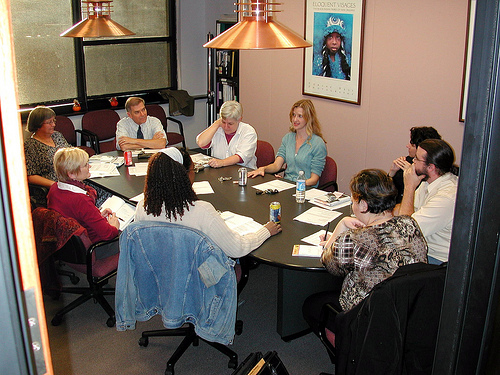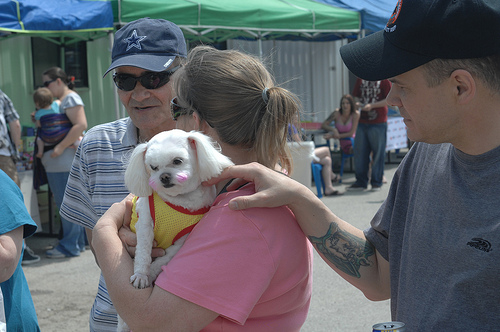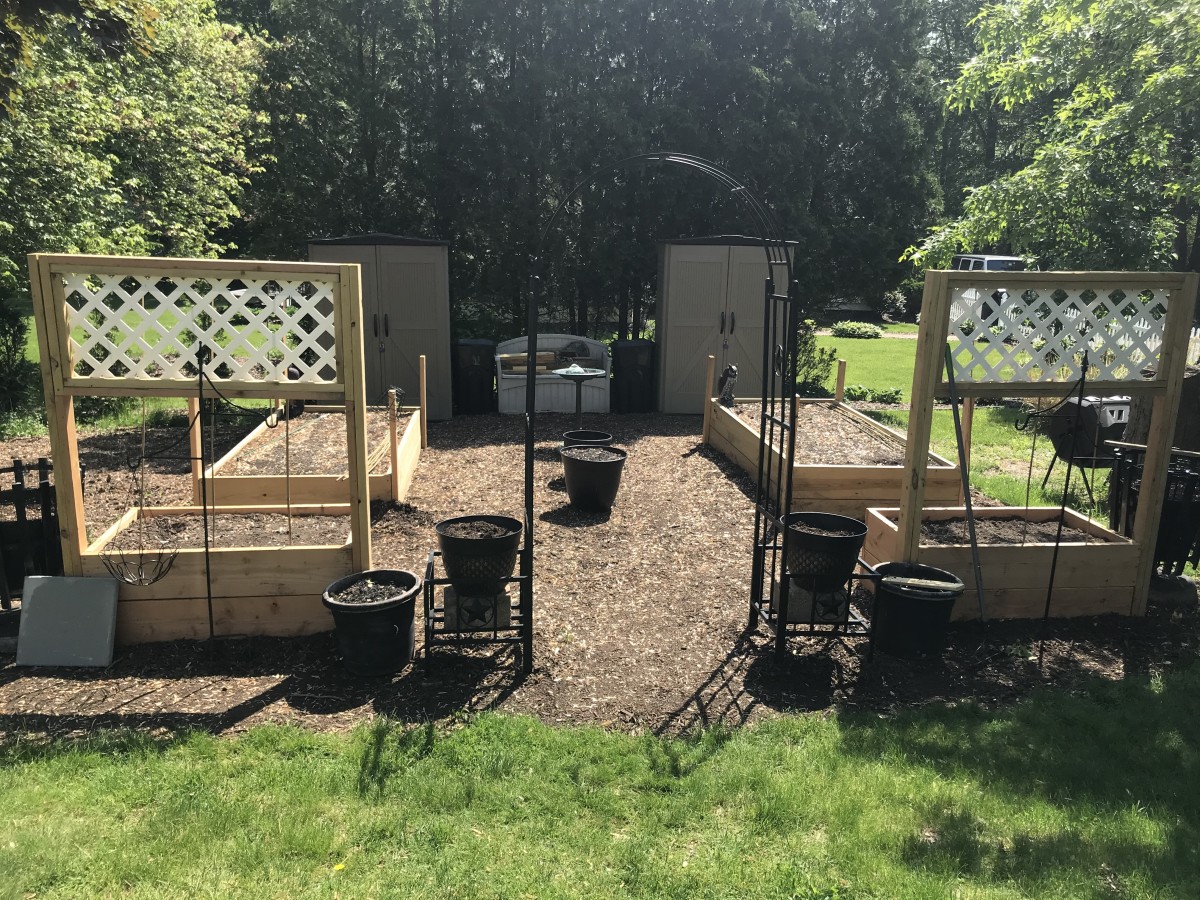How to Cultivate Social Support
Invite Family and Friends to Share Interests

What Is Social Support?
Social support is the term used to describe the people and entities in your life to whom you can go to for advice, for help, for consolation or for motivation. Social support may come in the form of friends, family, co-workers, teachers, spiritual leaders, support groups -- even online chat groups.
The quantity of members in your social support system are not as important as the quality of those people and resources. You need people upon whom you can depend to be there when you need them. You need resources that provide answers to questions, empathy when empathy is needed and encouragement when your own energy is flagging.
Social support also provides the feeling of belonging, camaraderie, provide and find feedback, support, honest interactions and are positive and enhancing to your life.
Different types of social support systems may be needed for the different areas of your life. It's likely that the social support you need in your work place is not the same type of network you may need to deal with a physical or mental illness. When you're trying to develop a new habit or replace an old one, you may need to change the support system with which you've become familiar.
Most of us look for social support unconsciously; after all, most humans are social creatures by nature. It's not always easy to know where to turn to find the type of support you need, but there are many avenues to be considered that will make cultivating social support easier.
Special Interests Bring People Together

Creating a Support Team/System
What to Consider Before You Develop a Social Support System
Before you begin to develop a social support system, you'll want to understand what you're hoping to accomplish. For instance, if you are new to an area, are you simply looking to find your niche in that community; are you seeking to connect with people in your line of work; are you seeking a spiritual center? As you can imagine, each of these goals could be met by three distinctly different types of people, or perhaps by a select few who happen to have all these items in common.
If you're a new college student, you're likely interested in developing new friendships and fitting into the social environment. You may want to get into student government or extracurricular activities. You may even be interested in joining or developing a study group or two.
Perhaps you, or someone close to you, has been newly diagnosed with a chronic or debilitating condition. In addition to the health care team, you might seek a social support network of others who have the same condition or people who have experience with alternative or complementary treatments.
As you can see, you might have several different social relationships and social support systems. They may all be interlinked some how. Your needs and desires will help direct you, at least in part to which social support opportunities might best benefit you.

Social Support System Increases Resilience and Coping
Need More Ideas? Check These Out:
- How to Make Friends and Meet New People With Common Interests:Attend a Free Meetup
- Building a Social Support Network: Living Longer and Better
Whether we are recovering from an illness or we simply desire to live a longer and healthier life, we need social support. Building a social support network is a skill we can learn that involves increasing the number of social contacts we have and im - Overcome Obstacles
Life is the ultimate obstacle course and we all spend our time overcoming obstacles, whether they be physical, psychological, spiritual and financial. Here's a run down of things that can help. - How Social Support Determines our Ability to Cope with Stress
This article examines how our level and type of social support determines how we cope with stress. Subjects explored are: what is positive social support, how does our perception of support affect health outcomes, and how exactly social support leads
Ideas for Developing and Cultivating Social Supports Systems/Networks
There is almost an endless number of entities and places where you can initiate or extend your social support network. Talk to the people already in your life for specific suggestions that have worked for them or ask in general how they have or they might handle such a situation.
That's one of the many perks of a social support system; you can get new ideas and insights from the people about whom you care and respect and create an ever-widening circle of supportive relationships. Again, it's not about the number of people in your support network that is important; it's that your support network works for you.
Here are some ideas for where to find social support:
* School: Teachers, coaches, counselors and other students may be great assets in your social support network. You will find guidance, camaraderie, encouragement and assistance with problem-solving.
* Work: Supervisors and co-workers are natural sources of support. If you're new at your position or have goals to move forward in the company, you may want to seek out a mentor among someone in management in a co-worker with more seniority. If you've been at your job for a period of time, you might seek to mentor a newer employee. Sometimes reaching out to others is just as fulfilling as looking for assistance.
* Go back to school or offer to teach a class for adults or volunteer as a classroom assistant or other needed service at local schools. You might just take an adult enrichment class or proctor a class at a local college.
* Volunteer at non-profit agencies or other venues. Choose a cause or service that has value to you; you'll meet others with similar interests to yours and be providing an important service to the community.
* Public Library has book groups, some of which meet in person, others communicate via the internet. Many libraries have programs for different age groups and interests and many are free to attend or low in cost. This is another place where you might be interested in volunteering.
* Pets provide avenues for social support. Take your dog for a walk or visit a pet park. Volunteer at the local animal shelter. Take your dog to the groomer. You're likely to meet other pet lovers in any of these situations; who knows what else you may find in common.
* Hobbies provide avenues for people with like interests to get together. Take a class or two or offer to teach a class in your favorite hobby. Join an online group for your interests or start one, either locally or online.
* Support Groups themselves are generally too structured to provide general social support, but those groups are made up of individuals such as yourself. There are support groups available in many communities for a plethora of interests; online there are likely more support groups than can be imagined.
* Meet-ups: These are usually comprised of people who have similar interests meeting together in a group setting for the purposes of social interaction and learning more and/or actively enjoying the topic of interest. Hubber Healthylife2 has described her experiences with meet-ups in this hub.
To Gain Support You Have to Be Supportive
Just like the axiom, "You have to be a friend to have a friend," in order to gain or continue to receive support from those in your social support network, you have to be there for the needs of the people in your network. Give-and-take is important for growing and sustaining supportive relationships.
We all know one or two people who may begin a conversation by asking you how you are; once you answer, the rest of the "conversation" is the other person talking on and on. Or the person who often asks favors of you but is never available for you to ask for any assistance from him/her. People begin to avoid folks such as these and the same will happen in your social support network without the give-and-take needed in such a relationship.
* Be a good listener
* Be a good communicator
* Seek out interaction when desired, needed and be available for those in your social support system to do the same with you
* Stay in touch to let people know you care. Don't simply contact people when you have a need.
* Treat others as you wish to be treated








